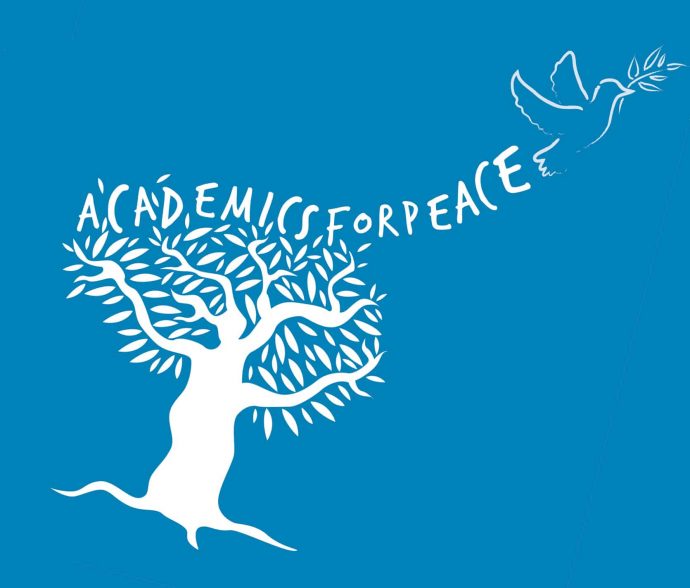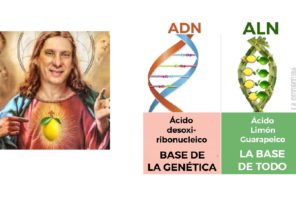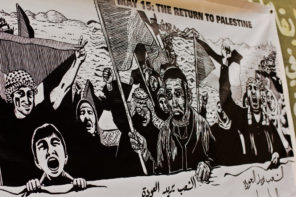The criminal proceedings against several hundreds of academics in Turkey who signed a petition for peace (Academics for Peace) continue in Istanbul. They are individually sued in various Assize Courts. Some cases are recently concluded, the courts of first instances found the academics guilty for “carrying out terrorist propaganda” and sentenced them to 15 months of prison. We are currently waiting the decision of the Court of Appeal.
We want to highlight these rulings against the signatories and request for urgent international support from our European colleagues.
In a petition made public in January 2016[1], more than two thousand academics and researchers from Turkey, supported by several hundred international academics—called on the Turkish government to abide by domestic and international law and to return to the peace process that had been interrupted in July 2015. After the petition was made public, the signatories were specifically targeted by President Erdoğan and subsequently attacked, threatened and became subject to administrative and criminal investigations. Some were arrested and kept in prison. In October 2017, some signatories of the petition, mostly the ones who are or were working at the universities in Istanbul, started to receive subpoenas, summoning them to the court with an accusation of carrying out terrorist propaganda.
As of April 30, 2018, more than 260 signatories are individually sued in various Assize Courts of Istanbul. They are separately tried according to hundreds of copy-pasted indictments with an identical content. There is also one group case against four signatories who read a second press statement of Academics for Peace on March 10, 2016. This statement condemned the persecution of signatory academics and affirmed signatories’ commitment to the wording of the petition of January 2016. The four signatories are arrested and were held in pre-trial detention for 40 days.
There are 2212 signatories of the petition, only around 300 of them have been sued so far. Furthermore 386 signatories have been officially listed as persons affiliated to terrorist organisations in the state of emergency decree-laws, dismissed from their positions, banned from public service for life and had their passports cancelled. But there is only a limited overlapping between the “sued signatories” and the “decreed signatories”.
The indictment included no attestations that are based on factual evidences, was full of inconsistencies and even manipulated the facts by altering the translated versions of the petition[2]. Against this arbitrariness, the signatories have defended themselves with emphasizing their responsibility as academics that instigates them not to remain silent against historical occurrences. As researchers, lecturers and scientists from numerous fields, they have all underlined their responsibility as a point of intersection, which made them come together through the demand for peace.
The differences between the qualifications of the “crime” committed by the signatories by different courts demonstrate also arbitrariness of the judicial proceedings. The individual cases against the signatories are engaged with the charge of carrying out terrorist propaganda. The indictment in the group case against the four academics also, initially accused them under Article 7/2 of the Anti-Terror Act[3]. However, at the first hearing on April 22, 2016, the Public Prosecutor announced that he considered a different qualification for the “crime” committed and intended to launch a new investigation under Article 301 of the Penal Code. That article prohibits “degrading the Turkish Nation and the State of the Republic of Turkey and the organs and institutions of the State.” [4] The Prosecutor requested the Court to stop the proceedings under Article 7/2 pending the required permission by the Minister of Justice for an investigation on charges under Article 301. The awaited decision by the Ministry of Justice in relation to the request for permission for an investigation under Article 301 of the Penal Code has reached the Court in November 2017.
In order to define an act as propaganda for a terrorist organization under Article 7/2 of the Anti-Terror Act, there must be an act having the characteristics of propaganda, which carried out in such a way that legitimizes or praises the coercive, violent and threatening actions of terrorist organizations or encourages the employment of these methods. In the Academics for Peace’s petition, there is no single expression having the characteristics of propaganda in favour of a terrorist organization. Neither does it legitimize or praise the coercive, violent and threatening methods of a terrorist organization nor does it encourage the employment of such methods.
As to the charge under Article 301 of the Penal Code, the act of signing the petition cannot be considered an offence under the third paragraph of the article, which explicitly excludes from its scope “expressions of an opinion for the purpose of criticism”.[5]
The focal point of all the hearings against Academics for Peace was the lack of clarity regarding the charges. Along with the requests for immediate acquittal, defence lawyers underlined the uncertainty surrounding the definition of the charges by pointing to the decision of the Minister to grant permission for an investigation under Article 301 in the case against four academics. Lawyers of some signatories requested the courts to merge the cases of all academics, including the one viewed before the 13th Assize Court against four signatories. They emphasized the need to avoid inconsistencies in the charges on which the prosecution will proceed and in the conclusions to be reached by different courts in relation to one identical act. On similar grounds, the courts with the exception of 35th Assize Court, dismissed the requests for rejoinder of the cases.
This routine of requests, pleas, rejections and objections had kept going on until the 23th of February, where the 34th Assize Court of Istanbul had given its first expedited judgment and found three of the academics guilty for “carrying out terrorist propaganda” under article 7/2 of the Anti-Terror Act. They have been sentenced to 15 months of imprisonment as the courts have decided that the punishment shall be aggravated as the crime of carrying out terrorist propaganda has been deemed to be committed through means of media.
The courts, relying on the Penal Procedure Code, have offered the academics an option: the deferment of the announcement of the verdict, which enables the court not to announce the decision, and in the case that the defendant will not be found guilty for another crime in a certain period, to foreclose the case. When the accused accepts this mechanism to be applied, then the qualification of the action as a crime becomes officialised and the accused becomes deprived of any rights on appealing the case at a higher court[6].
Until today 13 academics have their judgments delivered and 12 of them have accepted to resort to the mechanism of the deferment of the announcement of the verdict. And so far, one signatory had refused the application of this mechanism. As can be seen in the verdict (which is available in the appendices), the Court had rejected the suspension of the punishment upon the grounds that she had not exhibited any expression of remorse. This academic has applied to the Court for Appeal (Istinaf) and she faces the risk of imprisonment.
Hundreds of other proceedings against other signatories are still on the course. It is still not clear in which way these 13 first rulings will affect the copy-pasted cases considering that the judiciary of the country is collapsing day by day under the state of emergency regime. The first case before the Court of Appeal will probably create a strong judicial precedent that will be highly persuasive while the decisions are made in the future cases against the other signatories. All signatories are tried before various Assize Courts in Istanbul. Istanbul Regional Court of Justice is the competent court for the appeals. The cases will be reviewed by the same two criminal chambers of this Regional Court having competence on cases related to the Anti-Terror Act.
Today, it is crucial to ask an international support for our colleagues.
– We would like to invite you to write a short analysis on the verdicts delivered so far. For this purpose, we send you in the appendices the translation of the verdict against the signatory academic, who faces the risk of imprisonment. Please let us know if you were to write an analysis and to publish it on a blog of your choice so that we can also cross post it on the Blog of the Academics for Peace-Germany. If you wish to publish your analysis on this blog, you can directly send it to us.
– Many academics from different countries assist the hearings as observers. You can be in solidarity in the courtrooms. The presence of international observers during the hearings is crucial.
Please also feel free to distribute this call for solidarity among scholars who would be interested in supporting our call by either participating in the hearings or by writing a short analysis.
These actions for solidarity will certainly not suffice to change the course of this politically motivated trials, but certainly influence the way the hearings are held, strengthen the legal struggle of the Academics for Peace under judicial harassment.
Thank you for your concern and solidarity.
Academics for Peace – Germany
Legal Working Group
afp.jurists@gmail.com
For more information about the judicial proceedings against Academics for Peace, including the reports and comments of the international observers, please check our blog: https://afp.hypotheses.org
For a detailed flow of the hearing processes, please check: https://bianet.org/konu/trial-of-academics
For the calendar of the hearings, please check: https://calendar.google.com/calendar/embed?src=nstr2fppd37d7o0ekp83qu6e7g@group.calendar.google.com&ctz=Europe/Istanbul&pli=1
[1] The text of the petition in English, French, German, Spanish, Arabic, Russian, Greek is available at https://afp.hypotheses.org/documentation/the-peace-declaration
[2] The English translation of the bill of Indictment is available at https://afp.hypotheses.org/documentation/bill-of-indictment. A commented summary of bill of Indictment in English is available at https://afp.hypotheses.org/documentation/a-commentary-on-the-indictment
[3] The relevant part of Article 7/2 reads as follows: “Any person who disseminates propaganda in favour of a terrorist organisation by justifying, praising or encouraging the use of methods constituting coercion, violence or threats shall be liable to a term of imprisonment of one to five years. If this crime is committed through means of media, the penalty shall be increased by one half …”. The English translation of the Anti-Terror Act is available at www.legislationline.org/download/action/…/Turkey_anti_terr_1991_am2010_en.pdf
[4] Article 301 of the Penal Code reads as follows:
“1. A person who publicly degrades the Turkish nation, the State of the Republic of Turkey, the Grand National Assembly of Turkey, the Government of the Republic of Turkey or the judicial bodies of the State, shall be sentenced to a penalty of imprisonment for a term of six months to two years.
- A person who publicly degrades the military or security organisations of the State shall be sentenced to a penalty in accordance with paragraph 1 above.
- The expression of an opinion for the purpose of criticism does not constitute an offence.
- The conduct of an investigation into such an offence shall be subject to the permission of the Minister of Justice.”
[5] For further information please see the Legal Brief on the “‘Crime’ Allegedly Committed by the Academics for Peace: Propaganda for a Terrorist Organization or Degrading the State of Turkish Republic? At https://afp.hypotheses.org/236
[6] For more information, See: https://afp.hypotheses.org/408.
[pdf-embedder url=”https://allegralaboratory.net/wp-content/uploads/2018/05/Appendixes.pdf”]






